Yixing Technology specializes in custom tube bending and fabrication services, offering a comprehensive range of solutions to meet the most demanding requirements. Our capabilities cover a wide variety of tube and pipe manufacturing processes, including sawing, cutting, bending, end forming, trimming, beveling, edge cutting, grooving, and thread processing. Among these methods, Rotary Draw Bending is one of our most popular techniques, providing high precision and fast production speeds.
We leverage advanced technology and state-of-the-art machinery to ensure that every tube and pipe is bent to exact specifications, maintaining consistency and high-quality standards across the board. Whether you need small batches or high-volume production, Yixing Technology’s custom tube bending services are designed to deliver the ideal solution for your project needs.
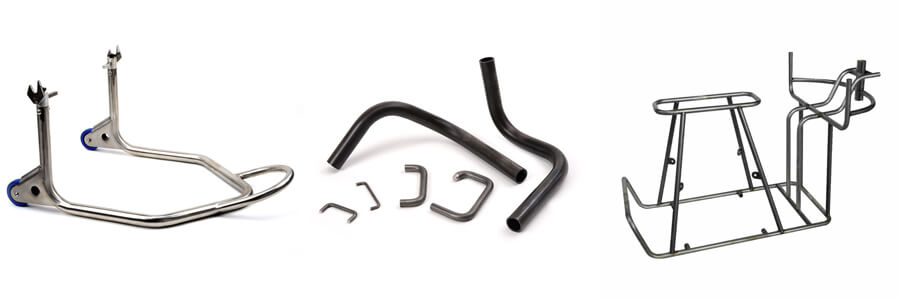
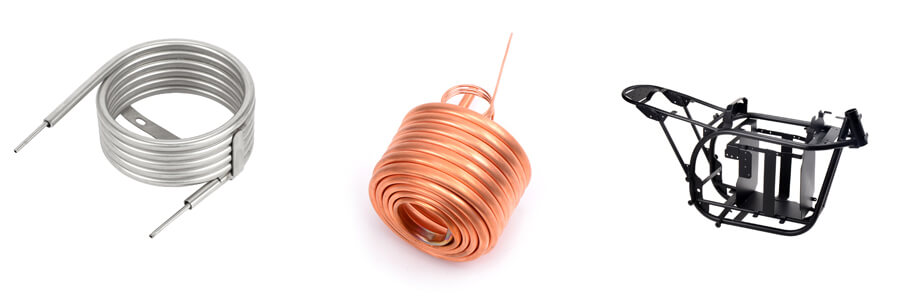
The bending process from Yixing Technology begins by loading a pipe into a bending machine and clamping it in two molds (clamping blocks and forming molds), while the other two molds (pressure molds and wiping molds) loosely fix the pipe.
The second step is to apply force to push the raw material oil pipe or tubing towards the mold, forcing the tubing to adjust to the shape of the mold. Usually, the raw material tube is fixed in the appropriate position, while its end rotates against the mold of the bending machine.
For multiple bending processes, it is necessary to place a mandrel inside the pipe to prevent collapse, while using a wiping die to maintain the pipe under tension to prevent any damage during the stress process. To prevent damage to the pipes, the wiper mold is usually made of softer materials such as aluminum or brass to avoid scratching the pipes.
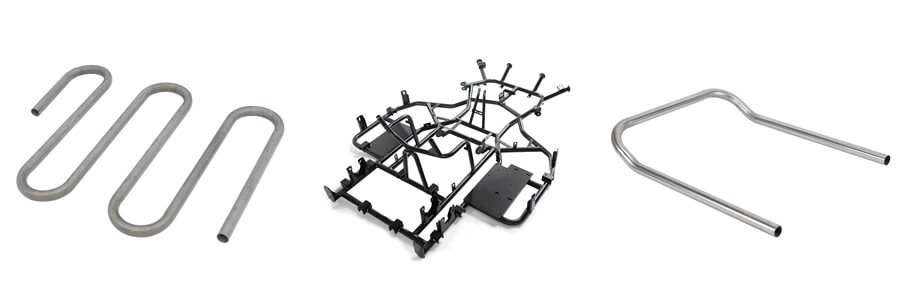
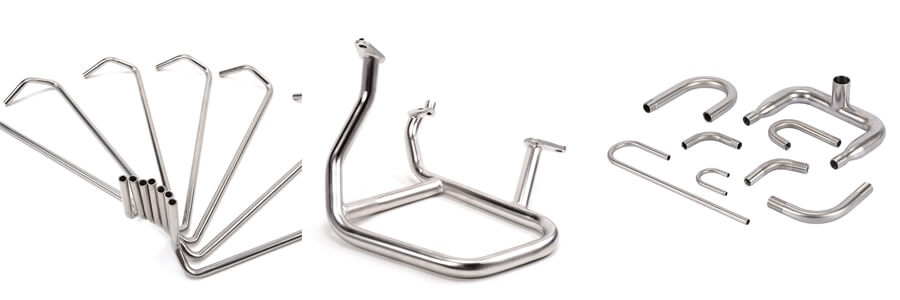
The selection of materials is a fundamental decision to affect the performance, durability, and applicability of the final product. Different industries or different functions have theirs preference in specific material according to the unique properties and characteristics. As an experienced tube/pipe bending and fabrication supplier in China, Yixing Technology can work with many kinds of materials.
• Seamless & Welded Tube
• Custom & Standard Size
• Aluminium Extrusion
• Stainless Steel Tube
• Carbon Steel Tube
• Galvanized Tube
• Copper/Brass Tube
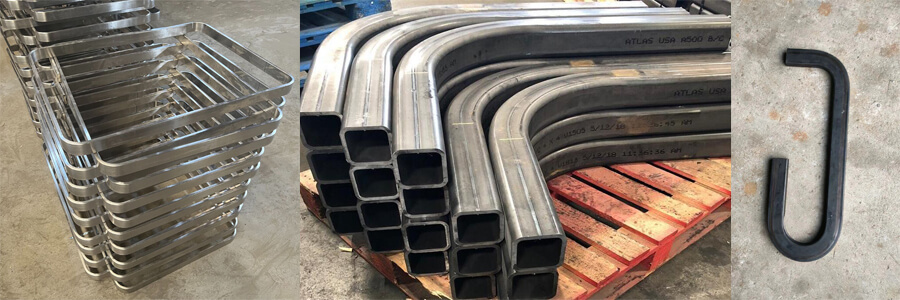

Comprehensive Manufacturing and Assembly Services: As a leading sheet metal manufacturing company in China, Yixing Technology provides manufacturing and turnkey assembly services, including pipe and tube processing, finishing, and assembly. This means you can trust us on the initial pipes and tubes and also the secondary cutting, bending, welding, stamping, combining fasteners or hardware, integrating with metal plates, plastics, or mechanical and electronic components, etc.

Expert Design and Prototyping Support:Yixing Technology provides professional sheet metal fabrication services. We can help you fine-tune your product design to ensure that your product can be produced accurately and efficiently. For new development projects, we can also cooperate wit you to make prototypes in different stages until you have mature design.We are strong support for you from initial design cost analysis to prototype and to mass production.

Industry-Specific Tube Bending and Fabrication Solutions: With providing tube/pipe bending and fabrication parts for carts, medical transfer aids, exhaust systems, irrigation system, chassis and roll cages etc, Yixing Technology has gained reputation among customers from automobile, agriculture, medical and solar energy industry.

Yes, Yixing Technology is equipped to handle both small and large production runs, providing flexible and scalable tube / pipe bending solutions for any project size.
At Yixing Technology, we use several advanced tube bending methods to meet varying customer requirements. These include Rotary Draw Bending, which offers precision by rotating the tube around a bending mold; Press Bending, a cost-effective method suitable for thin pipes; Roll Bending, which uses rollers to achieve bends with flexible setups; and Mandrel Bending, an enhancement for hollow tubes that prevents collapse by adding internal supports. Each method is carefully selected based on tube specifications to ensure high-quality, accurate results for all applications.
To reach the best tube bending results, we need to consider not only the material property itself but also the right machines, suitable tooling and lubrication.
1. Material
Spring back: Harder material usually has greater spring back and softer material like copper has less spring back.
Weld Seams: If the edge of the weld joint aren’t perfectly aligned, it will cause some issues like elongation and inevitably wrinkling.
Elongation: When elongation happens during bending, the wall of the tube will go thinner. The depression and distortion will be caused in the bending area.
2. Right Tube Bending Machine
Manual Benders: It is best for small projects with little budget which doesn't require repeatability and high accuracy.
Air/Hydraulic Benders: By using the power of air and hydraulics, it offer a hands-free and powerful bending solution. It is more accurate than manual bender but speed is slow.
Electric/Hydraulic Benders: The speed is more faster than Air/Hydraulic Benders and accuracy is good. It is widely used for many tube bending projects.
NC and CNC Electromechanical Bender: It provides more precise bends (can be 0.1 degree) and more faster speed. But the machine cost is high.
3. Tooling Options
Mandrel: If you are working on a hard tube, the mandrel should be soft. And vice versa if the tube is soft, you will need hard mandrel.
Bend Die: You should consider the bending die radius per the hardness or softness of the bending material. If the bending material is hard, you should consider a smaller radius.
Clamping Die: The length of the clamping die should be 3 times longer than the diameter of the tube. If the clamping die is not long enough, it will cause deformation.
Wiper Die: Fix the wiper die between the bend die and tube can stop the material flow so as to avoid the deformation.
4. Lubrication
To use the right lubrication is very important. It will reduce the friction between tube and bending die for more smooth bending.
Lead time depends on the complexity, material, and quantity of the order. Typically, smaller orders can be completed faster, while larger or more complex orders may require additional time for production and testing. We work closely with customers to provide accurate timelines.